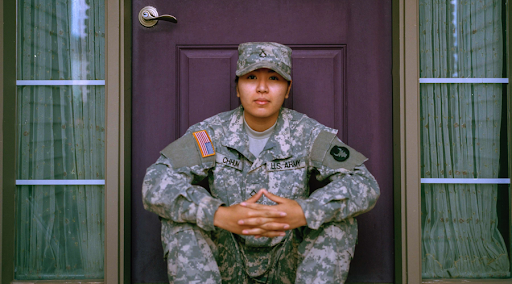Thank you for your service. As a United States veteran (or their surviving spouse), you can get special perks when financing a new home. In this article, you’ll find the VA home loan process explained simply from start to finish. By the time you finish reading, you will have a clear picture of how to take advantage of your benefits as a vet and links to the resources you need!
VA home loans offer a variety of perks over standard loans, like purchasing a home without any down payment, better rates and lower closing costs.
I. Eligibility: Find out if you qualify for a VA home loan
You’re going to need to apply for a Certificate of Eligibility, or COE, to demonstrate that you’re qualified for a VA home loan. To qualify, you must meet the minimum service requirement for the time period that you served and you must not have been dishonorably discharged. Surviving spouses of deceased service members can also qualify.
Service members:
On this page of the VA website, you can look up the minimum service requirements for Veterans, service members on active duty, and National Guard and Reserve members. Depending on when you served, the minimum active-duty service requirement is anywhere between 90 total days and 24 continuous months, or for the full period for which you were called or ordered to active duty. Make sure to view the full webpage to check that you meet the requirement for your exact service period.
Surviving spouses:
This page lists the requirements for surviving spouses. You qualify if you’re the spouse of a Veteran who is either missing in action, is a prisoner of war, or has died. Check the full webpage for specific information if you have since remarried.
II. Apply: The steps to apply for a VA home loan
First, be aware that you do not need your COE in hand to start the process, as this is typically something the lender will help with.
Apply for your Certificate of Eligibility (COE) here. You’ll need this to prove to your lender that you’re qualified for a VA-backed home loan.
Take a look at your finances and decide what your home budget is, including closing costs. Next, choose a lender for the loan. Look at private banks, credit unions, or mortgage companies, comparing interest rates and fees. Finally, choose a real estate agent experienced in working with VA Buyers, who will help you begin shopping for your new home!
III. Purchase: The home-buying process
First, your real estate agent will help you put together a purchase agreement for the house, which should include the “VA escape clause” or “VA option clause”. This clause allows you to cancel the contract and retain your earnest money if the house is appraised for less than the price listed in the contract.
Next, have a VA-approved appraiser inspect the house. They will check for major defects, make sure it meets minimum property requirements (MPRs), and provide an estimate of the value of the home.
Finally, it’s time for paperwork! You’ll receive a Closing Disclosure from your lender prior to closing on the house, which will lay out the terms of the loan and what your mortgage payments will look like. The final step is closing on your new home, and moving in!
Ready to get started? Here are the links from above in list format, plus a few other helpful resources.
Minimum service requirements for Veterans
Requirements for surviving spouses
Link to apply for Certificate of Eligibility (COE)


